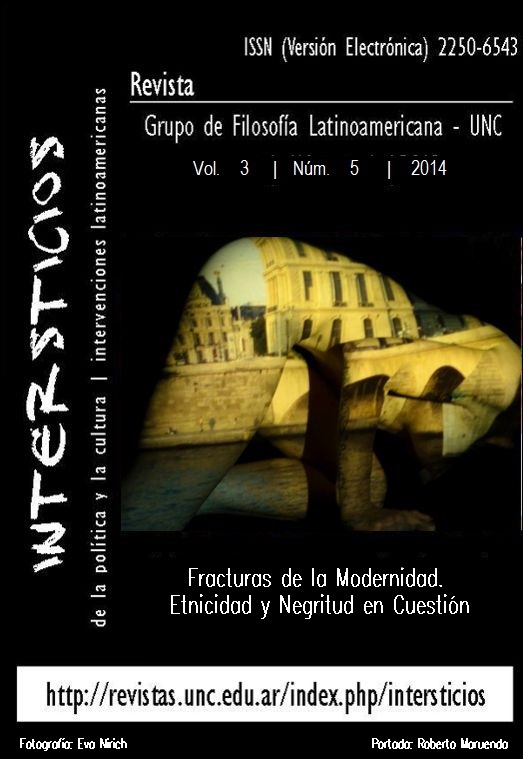POLITIZACIÓN INDIA EN EL JOVEN FAUSTO REINAGA
Abstract
Presento algunos elementos del “pensamiento indio” de Fausto Reinaga (1906-1994), el ideólogo más importante del indianismo. El objetivo es mostrar que el sujeto indio ha pensado, desde hace largo tiempo, cuestiones centrales para una crítica radical, no sólo del capitalismo, sino también de la “modernidad occidental” y su sujeto: el blanco-mestizo para el caso “latinoamericano”. Para ello, me centraré en la primera etapa del pensamiento de Reinaga, en la que confluyeron el marxismo-leninismo, el nacionalismo revolucionario y el indigenismo.
Palabras claves: Fausto Reinaga, “Problema Indio”, Ideologías.
Abstract
I present some elements of the "Indian thought " of Faust Reinaga (1906-1994), the most important ideologist of the “indianismo”. The aim is to show that the Indian subject has thought, for long time, central questions for a radical critique, not only of the capitalism, but also of the " western modernity " and his subject: the white – mestizo one for the "Latin-American" case. For it, I will centre on the first stage of Reinaga's thought, on that there came together the marxism - leninism, the revolutionary nationalism and the indigenismo.
Key words: Fausto Reinaga, " Indian Problem", Ideologies.
Downloads
Downloads
Published
Issue
Section
License
Authors who have publications with this journal agree to the following terms:
a. Authors will retain their copyright and grant the journal the right of first publication of their work, which will simultaneously be subject to the Creative Commons Attribution License that allows third parties to share the work as long as its author and first publication in this journal are indicated.
b. Authors may adopt other non-exclusive license agreements for distribution of the published version of the work (e.g., deposit it in an institutional telematic archive or publish it in a monographic volume) as long as the initial publication in this journal is indicated.
c. Authors are allowed and encouraged to disseminate their work through the Internet (e.g., in institutional telematic archives or on their web page) after the publication process, which may produce interesting exchanges and increase citations of the published work (see The effect of open access).


